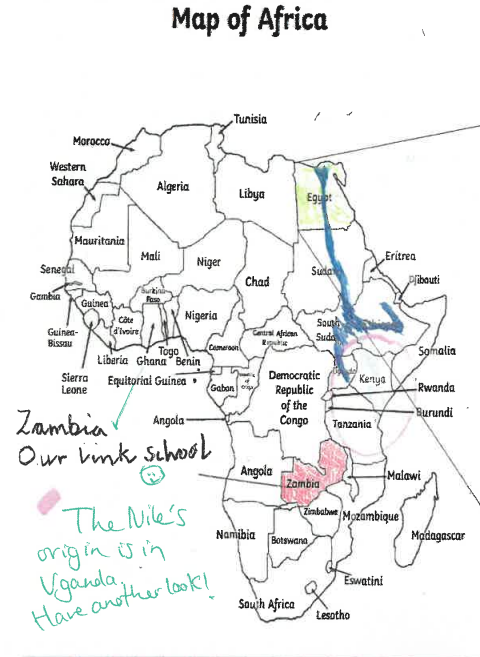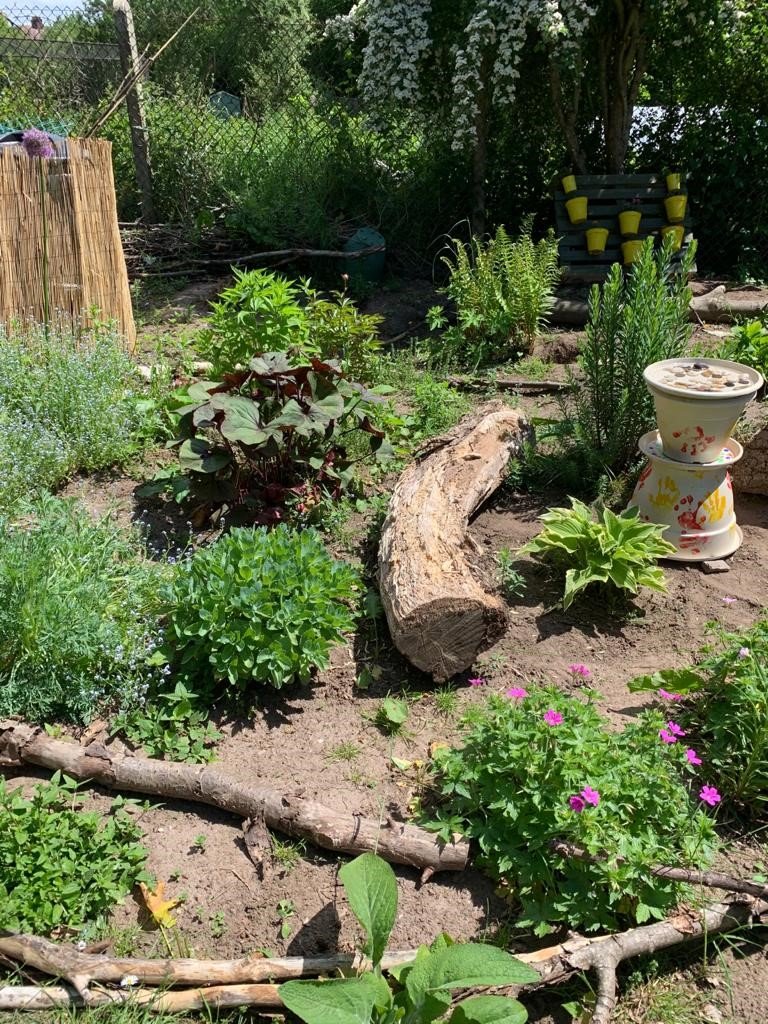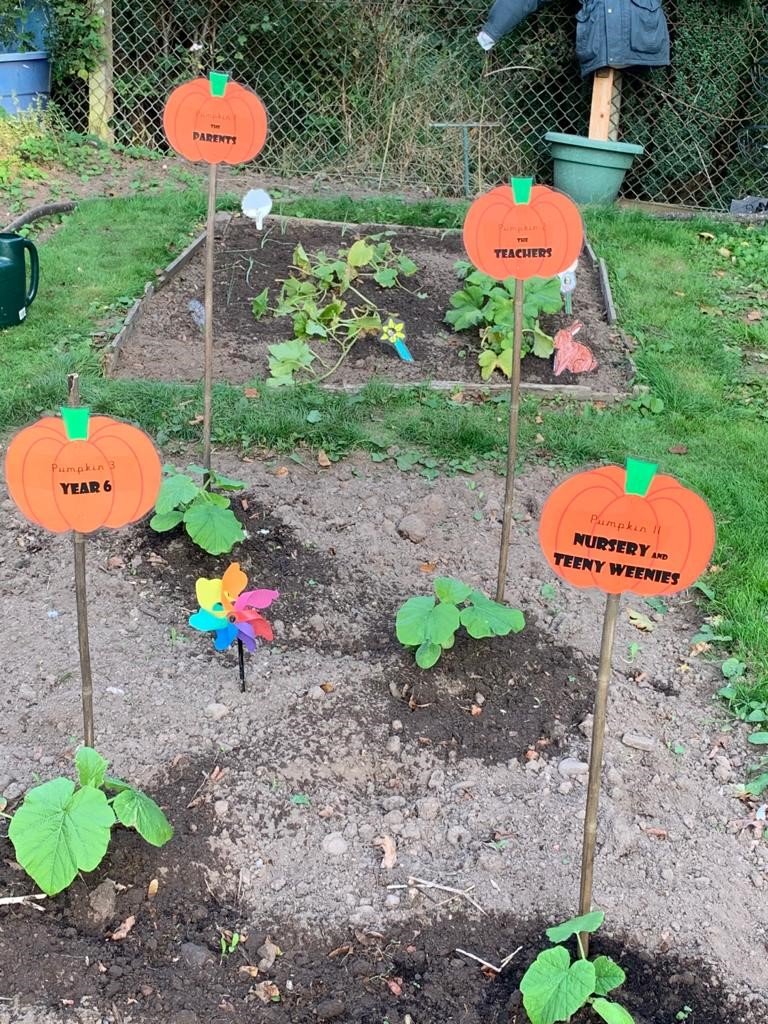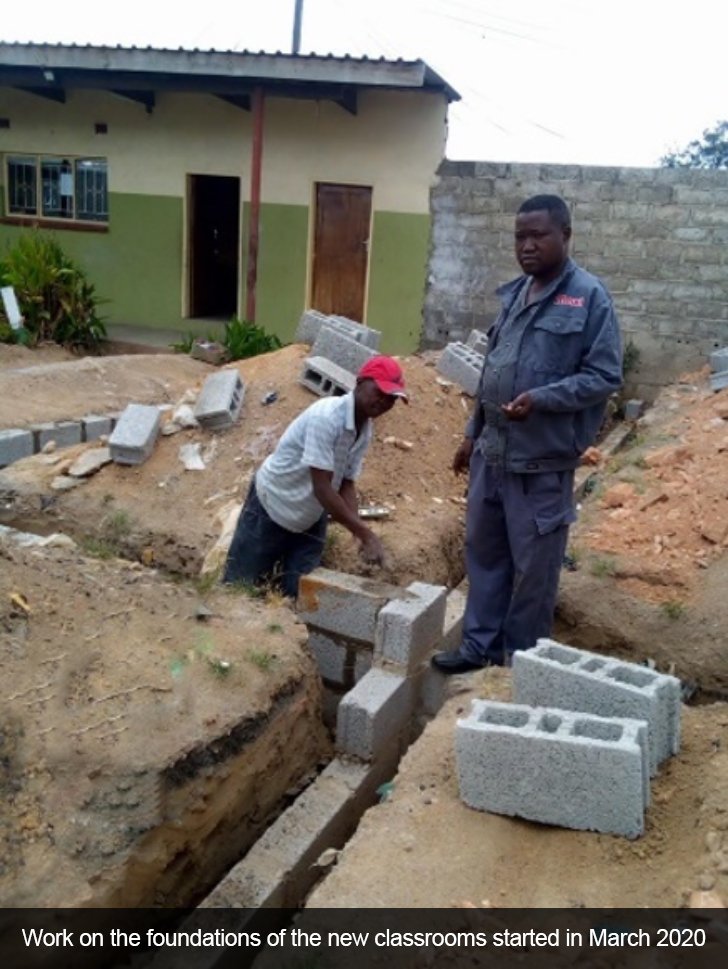Connecting Classrooms - Zambia
We are so proud to be part of a unique global education programme called Connecting Classrooms,
allowing us to forge partnerships with Kiine, Kananga and Kakaindu Primary Schools in Zambia, Africa.
Through event days and assemblies, our children will tackle issues such as climate change, gender equality and how to live sustainably.
As a school we hope that taking part in the project will give our children the chance to learn from others and their experiences. We want children to discover and embrace wholeheartedly the importance of everyone having the same rights and expectations for a fair and just society, and through global learning, teachers will be able to focus on key issues.
in 2021, we were proud to be awarded an International School Award (Intermediate level: Developing Internationalism) and so went on to develop
an action plan towards applying for the full accreditation (see below).
In 2023 we were awarded the full British International Award.
Mrs Feeney, Mrs Bayliss and Mrs Corbett went to the Houses of Parliament in January 2024 to be receive the award.
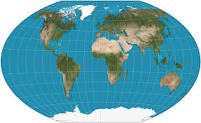
Make it stand out
Continuing our journey of learning together across the continents…..
We continued to work with our friends at Wodensfield Primary and St Michael’s Primary ‘connecting with our partner schools in Zambia.
This was our action plan towards the full British Intrernational Award
Here at Warstones, we are worked with Kiiene School in Zambia.
We focused on 7 new activities that will consolidate our shared learning with Kiiene and the work we do on diversity, language and global education in school.
We also find links to Zambia in our curriculum throughout the year.
At Warstones, activities will include:
Challenge from Chair of Governors to create a School Charter for Climate change
(improve school footprint and save on electricity/water)
Creation of an Eco Committee
Activity 1
Working together using British Council Sustainable Development Goals 13 (Climate Action - taking urgent action to combat climate change and its impacts) and 15 (Life on Land - protect, restore and promote sustainable use of terrestrial ecosystems, sustainably manage forests, combat desertification and halt and reverse land degradation and half biodiversity loss).
We want children to have a greater understanding of the world they live in - locally and globally. To understand the impact each one individually or collectively can have on the future of the planet. To develop a love for our world and desire to protect it. To look beyond our own needs and locality to the global needs of humanity and the environment and the influence we all have on the future.
The activities we envisage are to look at how we can combat the current climate concerns alongside cost of living crisis in England. How can we encourage children to take an ownership of their environment and be responsible for improving and sustaining it, and to work alongside our Zambian friends as to what these ideals mean in their environment and so learn how we can have an impact globally. At present, not aware of the activities being undertaken by school in Zambia.
Litter picking in local community.
Create a school woodland/natural area including growing new hedgerows for the local wildlife (support from the Woodland Trust).
Create a school orchard (also supporting local initiative for a small orchard near school).
Develop an outdoor curriculum that becomes embedded and progressive as children move through school. It must be at least one day every half term for al children and look at how we work with the environment, learn from it, support it and maintain it - inc gardening, habitats, human impact.
Year 5 performed an Indian dance that depicts harvest.
Thinking about Zambia and other countries in the African continent:
In October 2022, the Chair of Governors met with the School Council and issued them a challenge, to devise an Eco Charter that they as children would want the Governors to meet in our school. An Eco Committee was formed to canvass all the children in school as to what they felt should be included.
At the Full Governors meeting in February 2023, the Eco Committee presented the Governors with the following charter and will return to the Governors at the end of the year to monitor the school progress on what was said.
Eco Committee litter pick every half term around the shops next to school and the grass field in front.
Gardening Club - growing produce to share on 'Take What You Need' tables for our families.
Composting and collecting water to use on the allotments.
Canvassing local Garden Centres for plants not sold to use on school grounds)
Embedded in Curriculum: opportunities to link examples directly to Zambia
Place Knowledge: Y1 Unit BLBC Lesson G4, Y5 Unit SM Lesson G2, Y6 Unit DD Lesson G2
Human and Physical Geography: Y2 Unit LA Lesson G2, Y3 Unit FI Lesson G5 (economic activity). Y4 Unit IAM G2
Geographical Skills: Y3 Unit TT Lesson G1/2
Activity 2
Zambia Day. This year we held our Annual Zambia Day on 3rd July. After a wonderful assembly where Pastor Teddy shared videos of the colourful events and celebrations children enjoyed in Zambia, we focused on art activities, climate, geography and sustainable activities in our year groups.
Activity 3
Sharing Songs and Dance
We love to learn songs in school that we can move to or sign. Our one inclusive school includes children and staff from different cultures and faiths and we have children with different needs and disabilities. Our Deaf Resource Base is simply a part of our whole school, and all children, whatever their needs, faiths, cultures or lifestyles are valued and celebrated.
We have shared some of our songs and dances with our friends at Kiine.
Activity 6
BSL - a common language opportunity. At Warstones we are proud to include a Deaf Resource Base and children have been learning to communicate with each other using sign instead of voice. We thought this would be a wonderful way to communicate in a common language with our friends in Zambia. It was difficult to send short videos so we sent pictures of common greetings and words children might use together. We are looking forward to pictures of the children in Kiine signing back!
Activity 4
A View from my Window - we asked the children of both schools to draw, paint, collage a view from their window (school or class), individually or as a group/class and then send it to each other. It was an opportunity to explore the surroundings of each school, the environment that children live in (some in flats, open land etc) and develop it into dialogue about what children do each day other than when at school – similarities/differences and why? Opportunities again to explore the cultural aspects of the two countries and what it is like growing up in these countries. We will share the pictures from Kiine when they arrive!
Activity 7
The Great Languages Challenge
Using the British Council ‘Great Languages Challenge’ activity sheet, children have been looking at activities to do in the languages they learn in school - French and BSL. We have also shared the challenge sheet with Kiine School. Learning other languages helps break down borders. There are so many languages in every country now. In our school, 96 children have English as as second language, with 33 different languages spoken.
Activity 5
Community Flag - another joint project. We asked the children to paint, sew, collage aspects of their community, local business and shops around school to create a community flag we could share with each other. We are still making these - we need to make two: one to share and one to fly alongside the one we receive from Kiine!.
We have learnt the Zambian children’s song ‘Bonse Aba’ in sign and voice. We have sent it our friends to see if we got it right!
A work in progress!
From the French Language Challenge;
Try a food from a french speaking country that you have never tried before.
Year 6 had a french food tasting session and many tried snails for the first time!
















